Latest News
CEO demands serious regional cooperation for counter-terrorism
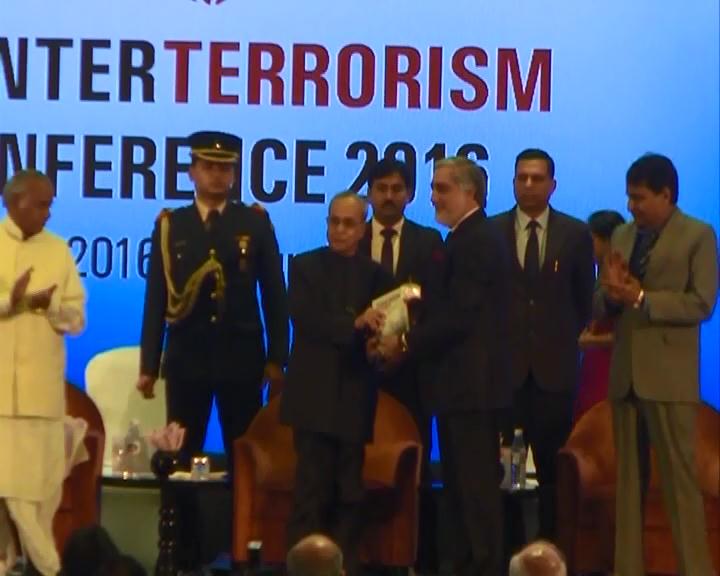
Afghanistan Chief Executive Officer, (CEO), Abdullah Abdullah in the power-packed seminar on Counter-terrorism called for a serious regional cooperation for counter-terrorism.
“The failures to follow through, the missed opportunities for regional cooperation, and the continued pursuit of zero-sum policies characterize these three eras. And together they have contributed to creating an enabling environment for terrorism and its utilization as an instrument of state policy,” CEO said.
Abdullah noted that before the imposed conflicts, Afghanistan used to be one of the most peaceful countries in the region, despite our rife poverty. “But we became one of the last victims of the Cold War, as the former Soviet Union invaded and occupied our country.”
“In defense of our sovereignty and freedom, the Afghan people rose in resistance against the Soviets. And in our just war of liberation, we relied on those in the international community that shared our values and offered us resistance support,” he said.
Abdullah went on to say that the end of the Cold War led to a power vacuum not only in the region but across the World and that regional players began to act irresponsibly in an effort to protect their self-interest and to strengthen their strategic position in their respective regions.
“In effect, the end of the Cold War ushered in the beginning of regional cold wars, as opposed to a level playing field for regional cooperation.”
He went on to say that ever since, states have often utilized proxy wars to serve their narrowly defined national security interests, disregarding “win-win” cooperation promoted by numerous UN Security Council resolutions backed by annual General Assembly debates.
But the situation has yet to change, even though lip-service is often given in support of a paradigm shift to results-oriented regional cooperation, he said.
Considering this dynamic, we are effectively facing a regional cold war where terrorism has become the principal instrument of projecting influence by some states against others, he said.
“As a consequence, there is no universal appreciation of the grave danger, which terrorism poses to regional stability and international peace and security.”
Although nations generally agree that terrorism threatens the security of the whole humanity, each state is developing its own homegrown capabilities to tackle the direct threat it faces within its milieu. They have been reluctant to adopt and implement a global counter-terrorism action plan, even though terrorism sees no borders, nationalities, religions, creeds or cultures, he said.
“I propose that each region assess the set of threats terrorism poses to their security and development and then agree to draft and implement a joint a counter-terrorism action plan,” Abdullah added.
This comes as India’a President also complaint over failure of regional countries commitments in terms of counter-terrorism.

Latest News
Nakamura canal project completed in Nangarhar

The construction of a water canal, planned by the late Japanese doctor and aid worker Tetsu Nakamura, has been completed in Afghanistan’s eastern Nangarhar province.
Nakamura was from Japan, but had honorary citizenship of Afghanistan. He was killed in 2019.
He worked in Nangarhar for many years, focusing mainly on building water canals.
Nakamura was working hard to complete his projects, but these were suspended following his death.
Later, the projects were resumed with the help of the government of Japan.
During his time in Nangarhar, Nakamura built several health centers and carried out more than 1,600 irrigation projects, canal constructions and provision of clean water.
His greatest work was the construction of a 25-kilometer long canal from the Kunar river, which irrigates hundreds of acres of land.
He also built a recreation park, dug wells, and established agricultural research farms.
“Dr. Nakamura made 9 weirs in Kama, Shewa and Behsud districts. Thousands of acres of land are irrigated and millions of people benefit from it. All the projects planned by Nakamura have been completed,” said Ajmal Stankzai, the representative of the Nakamura Foundation.
“Nakamura would behave with a laborer like a laborer. He would take stones with us. He used to tell us that the people of every country serve their country and you should also serve the ruined Afghanistan,” said Deen Mohammad, a resident of Koz Kanar district of Nangarhar.
In Kama district, the work of Nakamura projects is ongoing. One of the projects is the construction of a secon canal from the Kunar river.
“There was a huge water problem in Kama district. Fortunately, with Nakamura’s cooperation, many lands were irrigated,” said Bashir Ahmad Kamawal, a resident of Kama district of Nangarhar.
After Nakamura’s death, now an NGO called PMS is following in his footsteps and is working to build canals and dams.
Recently, the construction of a canal in Kot district of Nangarhar was completed and inaugurated. The canal is 5 kilometers long.
“Many projects are planned and our ministry has taken care of them… We thank them for feeling the pain of Afghans and helping our country,” said Abdul Latif Mansour, Acting Minister of Energy and Water.
Tetsu Nakamura was shot and killed by unknown men in 2019 when he was going to work from Jalalabad city. It is not yet known who was behind the assassination.
Latest News
Deminer killed in landmine explosion in Uruzgan
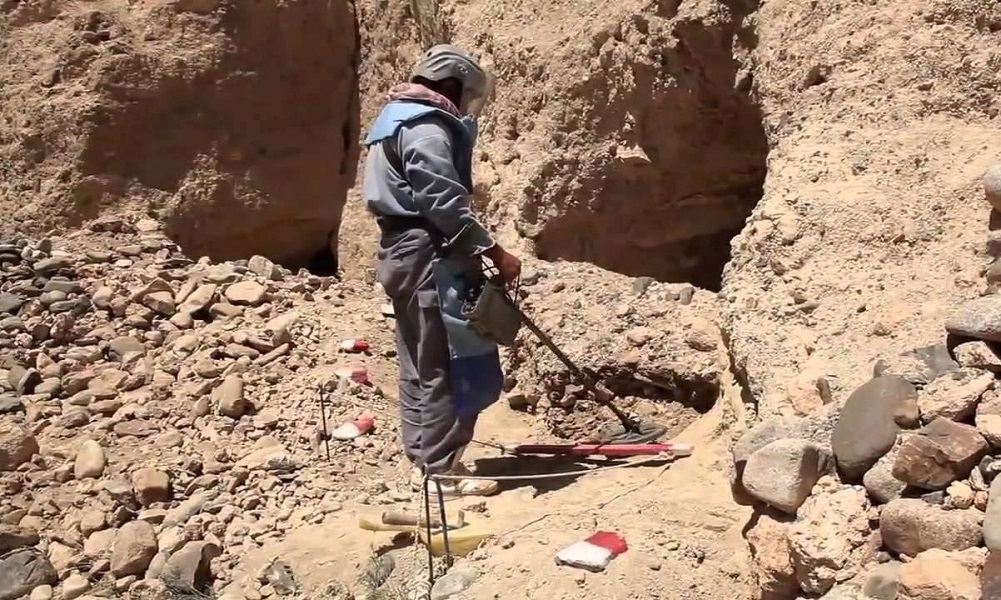
A deminer died in a landmine explosion in Afghanistan’s southern Uruzgan province on Tuesday, police said.
The incident happened around 10:00 a.m. in Khurma area of provincial capital Trink Kot, said Hazrat Bilal Uruzgani, the provincial police spokesman.
Another deminer was injured in the incident, he said
Uruzgani said that the incident happened during an operation to clear the area from mines.
Latest News
Acting health minister visits flood-stricken villages in Baghlan
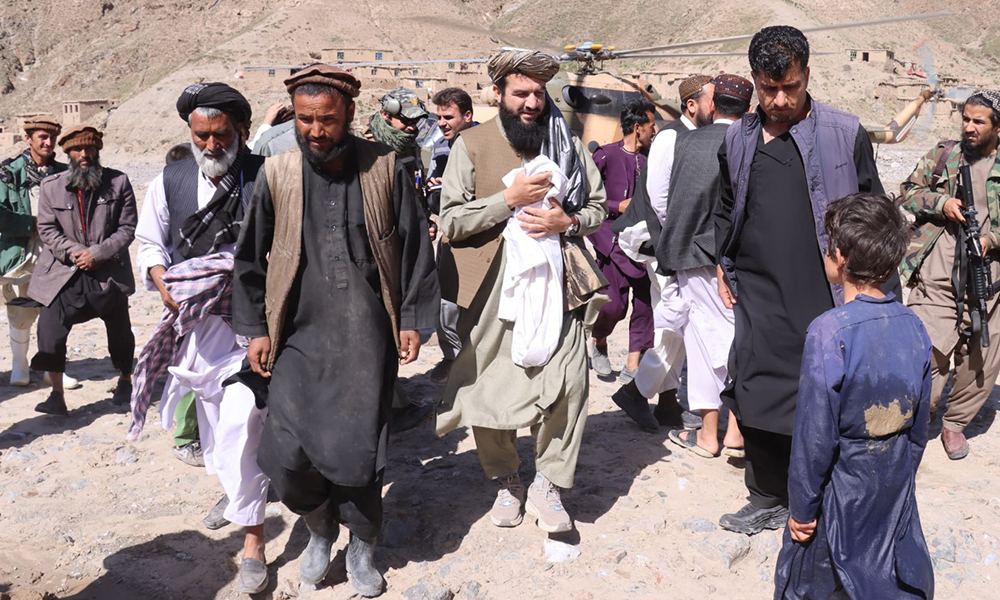
Afghanistan’s acting minister of public health Dr Qalandar Ebad, along with other officials, visited a number of flood-hit villages in Baghlan province on Tuesday.
The officials assessed damage in the villages of Sai Hazara and Gharo in the Guzargah district.
According to a statement issued by the ministry, Ebad inspected “vulnerable areas affected by recent floods and, expressing sympathy with the local people, promised that the leadership of the Ministry of Public Health will spare no effort to provide health services to those in need.”
Ebad also expressed gratitude for the efforts of healthcare workers and their commitment to helping people in need.
He directed officials to make every effort “to improve the health status of patients affected by recent floods in the villages of Sai Hazara and Gharo, Baghlan province”.
Based on official figures, more than 300 people have died as a result of floods in Baghlan province and over 1,600 others have been injured.
-

 Science & Technology4 days ago
Science & Technology4 days agoTikTok to label AI-generated content from OpenAI and elsewhere
-

 World4 days ago
World4 days agoIsrael strikes eastern Rafah as ceasefire talks end with no deal
-
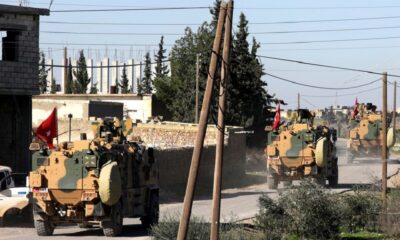
 Regional4 days ago
Regional4 days agoTurkey says it killed 17 Kurdish militants in northern Iraq, Syria
-
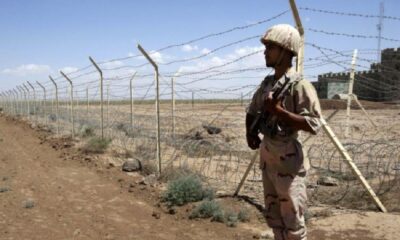
 Latest News4 days ago
Latest News4 days agoIran says work underway to block eastern border with Afghanistan
-
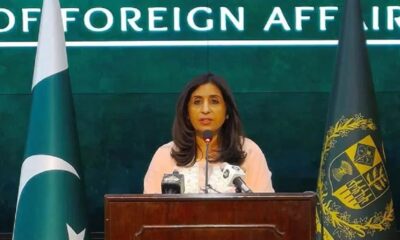
 Latest News4 days ago
Latest News4 days agoPakistan rejects IEA’s allegations of Daesh using its territory against Afghanistan
-
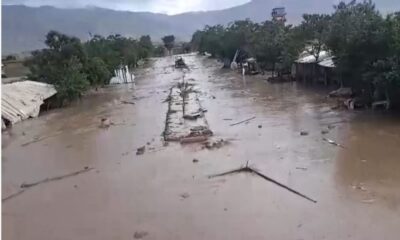
 Latest News4 days ago
Latest News4 days agoFloods leave 50 dead in Baghlan
-

 World5 days ago
World5 days agoIreland and Spain could recognise Palestinian state on May 21, RTE News reports
-
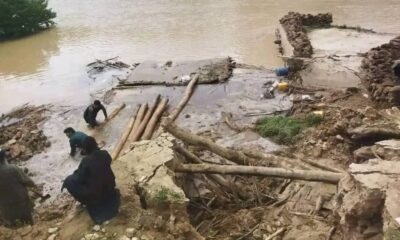
 Latest News4 days ago
Latest News4 days agoHundreds killed and injured in floods in four Afghan provinces

![TERROSIOM __03_02_2016_PASHTO_SOT.mpg_snapshot_01.52_[2016.02.03_17.03.33]](http://ariananews.af/wp-content/uploads/2016/02/TERROSIOM-__03_02_2016_PASHTO_SOT.mpg_snapshot_01.52_2016.02.03_17.03.33-300x240.jpg)















